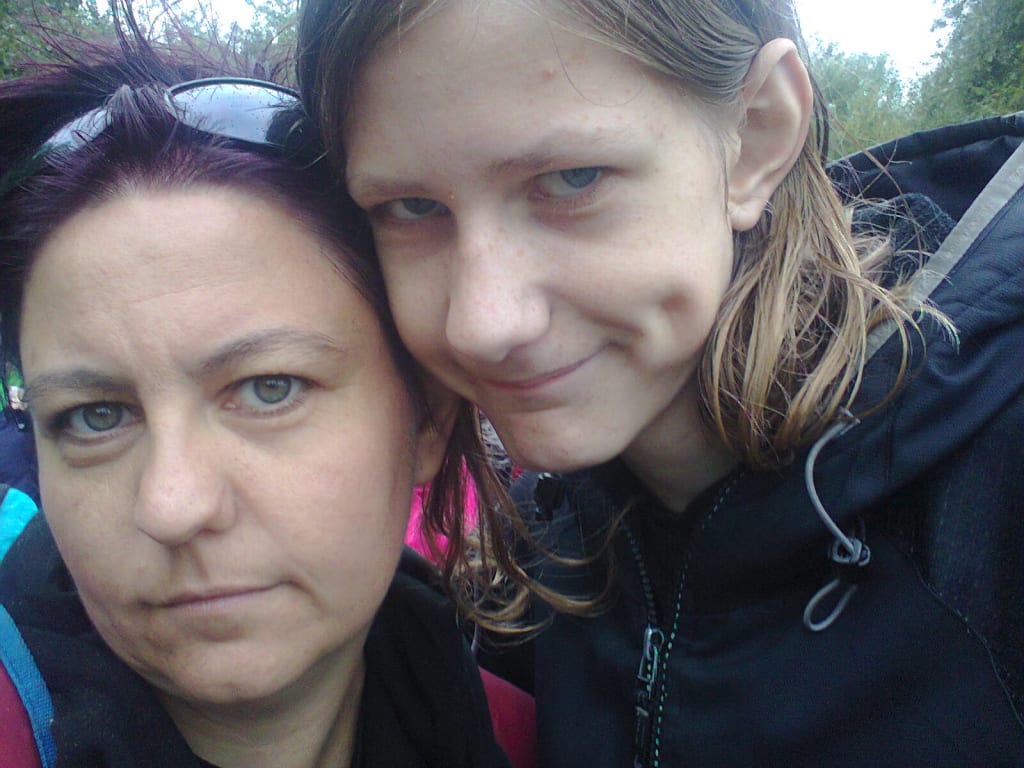Liberal Parenting
Giving children a choice

Every parent knows that children do not come with instructions and every parent will have different preferred methods of raising their child.
There are plenty of arguments for and against every aspect of parenting—from the seemingly insignificant to the major challenges, from the bottle versus breast debate to how to discipline a wayward teen and everything else in between.
One Size Does Not Fit All
Even if parents did have a handbook which worked for their child, there is no guarantee that the same advice, methods, and techniques would suit another child in another family. There is no guarantee that the same parenting style works for two siblings.
While parents have access to tips from professionals, experts, friends, and family alike, a lot of parenting is down to trial and error. If you are lucky enough that the same techniques your own parents used with you also happen to be ideal for your own offspring, that's great but it doesn't always happen that way.
What is liberal parenting?

My youngest son from earlier this year. Age 11 when the picture was taken.
Loosely speaking, liberal parenting is not giving too many restrictions to children, allowing them to make their own choices. It means allowing more freedom than other styles of parenting might, and it means setting few rules.
There is a misconception that liberal parenting means not caring about your child—not caring where they are, what they do, or who they are with. There is no denying that there are parents exactly like that but there is a difference between a parent who allows freedom of choice and a parent who simply couldn't care less.
Being a liberal parent does not mean allowing children to get away with everything, nor does it mean having no boundaries at all. It might mean talking to the child about, for example, a time to be home and giving them a say on it even if the decision is ultimately that of the parent.
Positives of Liberal Parenting
The main concept of liberal parenting is to offer children a choice, to let them know that their opinion matters and their feelings are important. It doesn't have to be to the extent that they have a tantrum every time they get their own way. It is possible to teach manners and discipline while allowing freedom.
A lot of parents will be familiar with such things as trying to get a child to eat something they don't want. You could force them to eat it, you could leave it and allow them to be fussy about it—this seems to be something other people assume happens when you're a liberal parent but a liberal parent might offer a choice.
When a child is offered a choice, they still end up doing something the adult wanted them to do but they feel like they have chosen to do it (apparently, this also works with husbands).
Scenario 1:
Parent: Eat that broccoli
Child: No
Parent either forces it on the child or gives in.
Scenario 2:
Parent: Are you going to try the broccoli or the carrot?
Child has a choice and will, most likely, choose one of them rather than making a fuss.
There will always be situations when the child may have no choice and parents need to ensure that the child understands this.
As children get older, there will be different challenges and choices. For some children, there may be a lot of leeway while others might require more decisions to be made for them.
A choice for a preteen, for example, might be to compromise a later bedtime or whether they have a shower before they do their homework (this sort of thing means they are doing the things they need to do but still feel like they have some freedom of choice).
Who is this sort of parenting for?
As I said at the beginning, every child is different. Some methods are better for some and others are better for others.
It's also possible to incorporate parts of liberal parenting into other parenting styles. If you find your child rebelling because of rules which were once relevant when they were 4 but too strict at 14, it might be worth talking with them and allowing them to voice their opinion.
"Liberal parenting means letting children get their own way."
No, it really doesn't. A parent who allows a child their own ay all the time, allows them to behave like brats on a regular basis, that's just bad parenting.
Please let me clarify something here. There are some children who have genuine problems such as autism, ADHD, etc. which means they might have a meltdown. These are not children who are "allowed" to play up. There is a difference.
Liberal parenting does not mean a child gets their own way all the time. It simply means they are given more choice. It's more about asking a teenager what time they'll be back, discussing it if the parent thinks it unreasonable, and agreeing rather than telling them.
I didn't realise that I was a liberal parent until my partner pointed it out. It hadn't occurred to me that including my children in family decisions wasn't a normal thing that everyone did or that it was a liberal thing to ask my children to choose hobbies rather than force them to do something I wanted them to do.
The thing about giving two choices, that's worked really well for my youngest son. He is autistic. He isn't very good at making decisions without options. If, for example, I asked what he wanted for dinner, I could be waiting several hours for him to give me an answer. If, however, I asked him if he wants beans or peas (he'd say beans), nuggets or fish fingers, curry or bolognese, he has a better chance of making a choice.
I'm not sure it is an autism thing as his brother is quite similar and, as far as I know, he's neurotypical.
Anyway, the point: yes, I am liberal with my children. They have certain rules but I don't need to make many. We tend to make rules as and when it becomes necessary, and rules change as my children get older and more trustworthy. I may be biased but I think they are both awesome.
Summary
Liberal parenting worked (works) for me and my children have turned out fine—total nutcases but absolutely fine. They have learned some decision-making skills (OK, we're still working on that a little but getting there). They know that their opinion matters but also that they must sometimes accept things they do not like. Also, because they are consulted about the decisions which affect them, and about all sorts of household issues such as budgeting, finance, cooking, and shopping, they also have a good understanding of those things and how to work as a team.
This works for us but, as previously stated, it might not work for everyone. I have had to adapt a few things for my children because they are different people (that's something I should have mentioned before—a liberal parent knows that children are individuals, not factory drones) so there will be different rules. I can tell my eldest that he smells and he'll jump in the shower while my youngest responds better to being given the choice of having a shower before or after homework.






Comments
There are no comments for this story
Be the first to respond and start the conversation.